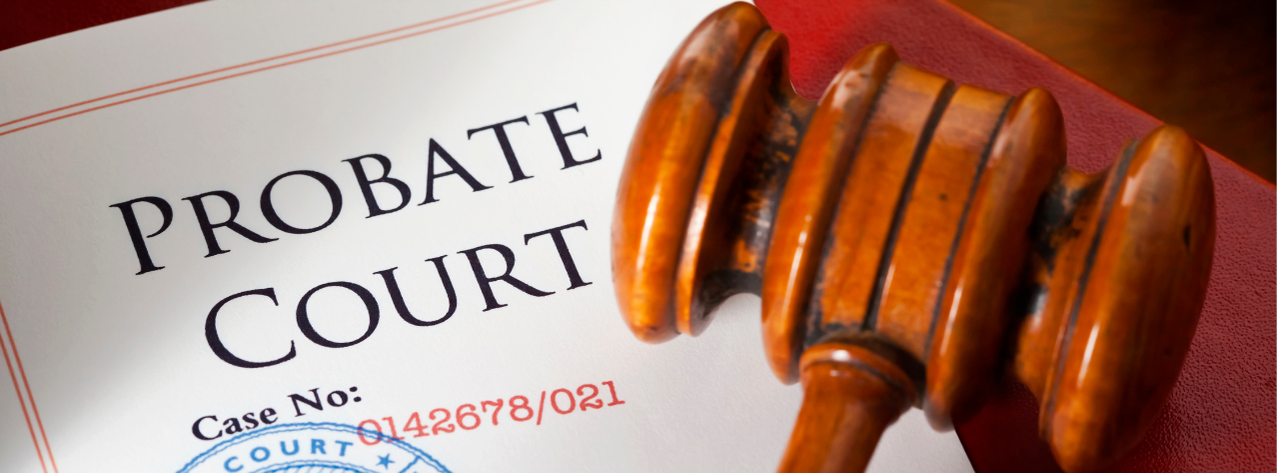Introduction to Probate
Probate is a legal process that takes place after a deceased person passes away. It involves the validation of the deceased’s will by the court, the appointment of an executor for the estate who is bestowed with the authority granted by the court to settle any outstanding debts and to distribute the estate assets to the rightful beneficiaries. Probate proceedings may seem complex and time-consuming to someone who has no experience and knowledge in this field, therefore, it is important to understand what steps need to be taken to navigate it effectively.
What is Probate?
Probate is the court-supervised process of administering a deceased person’s estate. If the deceased had a valid will, the probate court ensures that the instructions in the will are carried out appropriately. If there is no will, the court follows state laws to distribute the assets.
Steps in the Probate Process
- Filing the Petition – In Texas, the process begins when an interested party, usually the executor named in the will or a close relative, hires an attorney who files a petition with the probate court.
- Notifying Heirs and Creditors – The court requires publishing a formal notice to all potential beneficiaries and estate creditors, giving them an opportunity to make claims.
- Validating the Will – If a will exists, the court verifies its authenticity. Otherwise, the court will determine the heirship, meaning the court will legally identify the heirs and their respective shares of the estate.
- Appointing the Executor or Administrator – The court will appoint an executor or administrator and issue Letters Testamentary or Letters of Administration, accordingly. Both documents serve to legally authorize the individual appointed by the court to act on behalf of the estate. Such individual holds the highest duty as a fiduciary of the estate, and his role is to administer the estate and distribute the assets according to the will’s provisions, or in accordance with Texas intestacy laws. Financial institutions and other entities often require these specific documents as proof of authority before allowing access to the deceased’s assets.
- Inventorying Assets – Next, the executor identifies and appraises the deceased’s assets, which may include personal property, real estate, bank accounts, investments, and digital assets.
- Settling Debts and Taxes – Any outstanding debts, including loans and estate taxes, must be paid before assets may be distributed to heirs or beneficiaries.
- Distributing Assets – Finally, after all debts and taxes are settled, the remaining assets are distributed to the beneficiaries according to the will or state law, if no will exists.
How Long Does Probate Take?
The duration of probate varies depending on the estate’s complexity, individual circumstances, and whether any disputes arise. Simple estates may be resolved in a few months, while more complicated cases can take years.
Avoiding or Simplifying Probate
There are strategies to minimize or bypass probate, including:
- Creating a Revocable Living Trust – Assets placed in a living trust can be transferred directly into the trust, with you maintaining control over them during your lifetime. After your passing, assets will be distributed to your beneficiaries without the need of going through probate.
- Joint Ownership with Right of Survivorship – Certain types of joint ownership allow property to pass automatically to the surviving co-owner (i.e., joint tenancy with right of survivorship or community property with right of survivorship (for spouses).
- Beneficiary Designations – Accounts such as life insurance policies, bank accounts, investment accounts and retirement funds (401(k), IRA) can be assigned to specific beneficiaries.
- Giving Assets as Gifts Before Death – Texas does not have a state gift tax, therefore you can gift property or money up to a certain amount to your beneficiaries during your lifetime without worrying about paying a state gift tax. The federal gift tax exclusion in 2025 is $19,000 per recipient per year for an individual, or up to $38,000 for a married couple. Which means you can give up to $19,000,or $38,000, respectfully, to each of your beneficiaries per year without triggering gift tax. Gifts under this exclusion don’t need to be reported to the IRS. The lifetime gift and estate tax exemption for year 2025 per individual is $13,99 million, which is the total amount you can give away either during your lifetime or at death without incurring federal gift or estate tax. That amount is doubled for a married couple. If your lifetime gifts exceed this threshold, the excess is subject to the federal gift tax of 40%. However, the lifetime exemption is subject to change in 2026 if Congress doesn’t choose to act.
Conclusion
Probate is a public process in Texas. It requires hiring a licensed attorney to probate a will or apply for determination of heirship in the absence of a will, which can be lengthy, challenging and expensive. Because estate planning can save your family time, money and stress, it is easy to see why with proper estate planning, individuals can reduce the burden on their loved ones and gift them peace of mind. Understanding probate laws and available options allows families to make informed decisions for the future.
Schedule your initial complimentary peace of mind session with us today to discuss your unique goals and needs. Together we can create a tailored estate plan to ensure a smooth transition of assets and protect your beneficiaries from facing unnecessary complications when the time comes.




